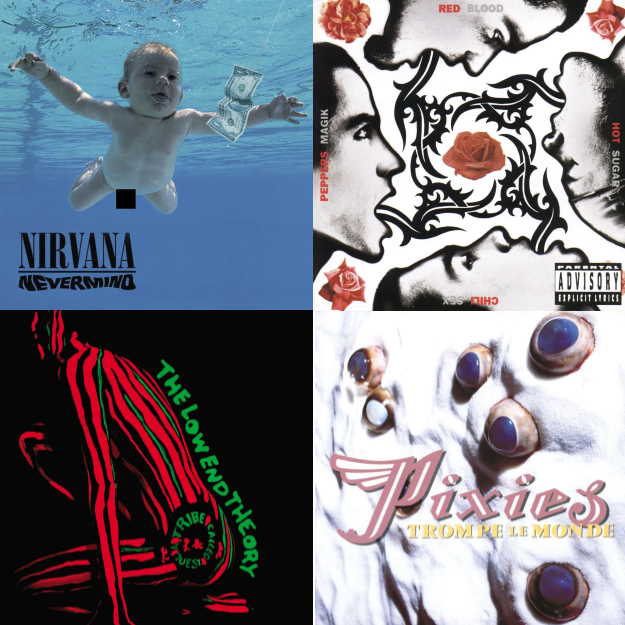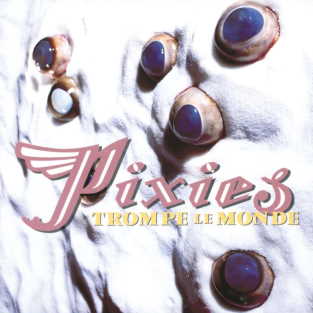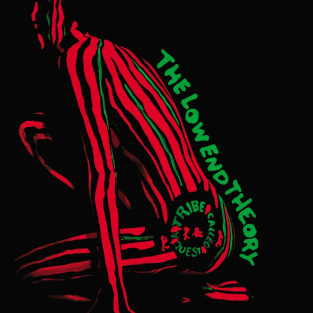| |
Taken from The Spokesman (Sep 21, 2021)
Is Sept. 24, 1991, the greatest day in music history?
by Ed Condran

Four Groundbreaking Records on Sep. 24, 1991 |
The internet was in its infancy, and cellphones weren't ubiquitous in 1991, which seems like the Paleolithic era, at least to my children. But 30 years ago this week marks the anniversary of some groundbreaking music releases: Nirvana's "Nevermind", The Red Hot Chili Peppers' "Blood, Sugar, Sex, Magik", The Pixies "Trompe Le Monde" and A Tribe Called Quest's "The Low End Theory". Each groundbreaking project dropped Sept. 24, 1991.
Kirk Miller, the managing editor of the entertaining and informative InsideHook, suggests that was the greatest day in music history. Miller knows what he's talking about. I worked with him briefly on some pieces with Rolling Stone, including this feature about Axl Rose failing to show up for a Guns N' Roses show in Philadelphia.
I'll never forget that day or period since I had just crossed over that month from broadcasting to covering music as a print journalist. It's all about timing. At the beginning of that month, I received a promo copy of "Nevermind". The buzz was enormous. I remember interviewing Douglas McCarthy, the vocalist from Nitzer Ebb who was on Nirvana's label, DGC. McCarthy said he was blown away by "Nevermind" and that the record company gushed about it.
I recall how transfixed I was by "Nevermind" from the urgent opening riff of "Smells Like Teen Spirit". I sat down and stared at the speakers for 42 minutes and 36 seconds. The last time I had that reaction was when I played Sonic Youth's "Daydream Nation", which blew my mind.
A couple days later, Oct. 1, 1991, I experienced Nirvana live at a tiny Philadelphia club, J.C. Dobbs, and felt a cultural shift. Nirvana had pricked the hair-metal bubble. I never felt such a tangible switch in direction. I wrote a piece about how Nirvana, along with Kitchens of Distinction and Ned's Atomic Dustbin, would become the darlings of the '90s and earn critical acclaim and headline large theaters.
Just before Nirvana blasted off in the stratosphere, I interviewed and spent the night hanging out with Courtney Love, who was obsessed with Nirvana's Kurt Cobain and the band. "When you talk to Kurt, tell him that I have a big crush on him", Love said. Three weeks later, she cornered him in Chicago, and that was the beginning of the biggest rock love story from the grunge period.
I interviewed guitarist John Frusciante, who had just joined the Red Hot Chili Peppers. I was fascinated since Frusciante was just 21 and was tabbed to play a vital role in his favorite band. I was impressed with "Blood, Sugar, Sex, Magik". I caught the Chili Peppers at my school, Temple University, in 1988, and it was bedlam. It was a few weeks before Frusciante's predecessor, Hillel Slovak, died of a heroin overdose. Chili Peppers frontman Anthony Kiedis couldn't perform, so Fishbone frontman Angelo Moore replaced Kiedis after his band tore it up.
The Chili Peppers became superstars courtesy of their punk-funk, but Fishbone, who were part of the same subgenre, deserved acclaim, which they never received. Fishbone bassist Norwood Fisher thought it was due to race since Fishbone is comprised of black players. However, Fisher changed his tune a couple of years ago when I asked him about the Chili Peppers' superstar status. "The Chili Peppers became Led Zeppelin", Fisher said. "I have no issues with them at all. They're friends".
 |
Regarding "Trompe Le Monde", the Pixies were huge in the U.K., particularly Ireland, but inexplicably played clubs in America during their prime. This discrepancy is part of the reason why they aren't included in the Further Review on the next page. It's befuddling because they deserve accolades. The Pixies were one of the most influential bands of their era, and they wrote and recorded some incredible songs. The infectious "Alec Eiffel", the unhinged but accurate take on education "U Mass" and the wonderfully quirky "Space ("I Believe In") are timeless.
 |
"The Low End Theory" is one of the greatest hip-hop albums of all time. The amalgam of jazz and hip-hop is sublime. Rappers Q-Tip and Phife are connected like no other MC tandem. A Tribe Called Quest moved their genre forward, and the album still stands up. Was Sept. 24, 1991, the greatest day in music history? Well, it's difficult to top May 16, 1966, when the Beach Boys' "Pet Sounds" and Bob Dylan's "Blonde on Blonde" were released. You can make a "Greatest Musical Day" argument for any day a Beatles album saw the light of day starting with "Rubber Soul".
My life certainly changed after that autumn day in 1991, but a musical and cultural shift doesn't just happen on the spot. When I examine what the aforementioned bands yielded, I look back to 1988. The seeds were planted then with an array of groundbreaking albums such as Sonic Youth's art-rock masterpiece "Daydream Nation", the Pixies' seminal "Surfer Rosa", Jane's Addiction's daring "Nothing's Shocking", the Sugarcube's joyful and idiosyncratic "Life's Too Good,' Nick Cave's intense "Tender Prey", "Prince's enduring "Lovesexy", Public Enemy's manifesto "It Takes a Nation of Millions to Hold Us Back" and My Bloody Valentine's brilliant "Isn't Anything". Most of those albums didn't sell much but had such an artistic impact.
And 1991 begat 1992, which was an incredible year. Sonic Youth's grand "Dirty", L7's visceral "Bricks Are Heavy", P.J. Harvey's raw cry out for feminists "Dry" and Pavement's lo-fi classic "Slanted and Enchanted" were some of the most memorable releases of '92. Looking back at 1991, it was in the middle of a musical renaissance from 1988 to 1994. Feel free to revisit or experience material from that golden era for the first time.
|
|